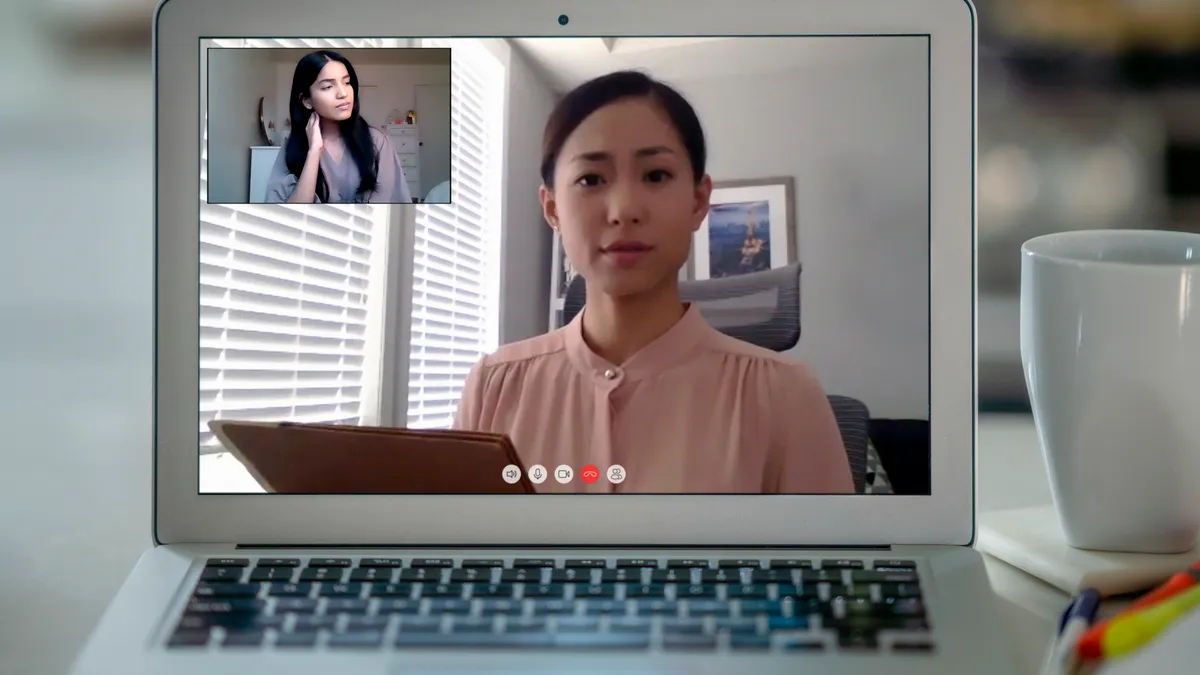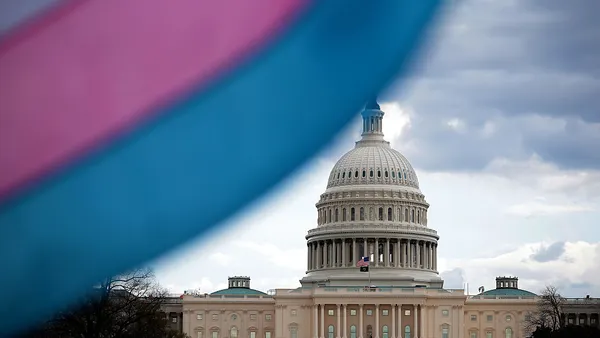In the fall of 2021, the state of New Jersey surveyed thousands of college students in the thick of the COVID-19 crisis to better grasp how it had affected their mental well-being.
Polls consistently showed the pandemic taxed student mental health, but the findings of the New Jersey survey still jarred state officials — more than 70% of respondents said their anxiety was higher in fall 2021 than it was a year earlier.
The New Jersey Office of the Secretary of Higher Education wanted to do something.
So it crafted a new program, which it cast as first-of-its-kind in the U.S., that provides free around-the-clock online mental health services to college students, such as therapy sessions. It was funded through $10 million in one-time federal pandemic relief dollars given to the state.
Any type of institution — two- and four-year, public or private nonprofit — could opt in without any expense so long as they received state aid.
New Jersey contracted with telehealth platform Uwill to create the program. Uwill emerged during the pandemic as demand for online counseling skyrocketed, helping grow its business. But its contract with New Jersey is its largest yet, said Uwill’s chief executive and founder, Michael London.
The program is still in its infancy, with the state announcing it late last month. It will be evaluating it on multiple metrics, like how much students tap into it, said Brian Bridges, New Jersey’s higher education secretary.
It could be a model for states looking to scale virtual programs that address mental health concerns. And it may also serve as a test case for the willingness of state policymakers to invest in college projects funded by temporary federal pandemic aid. Billions of dollars of this money benefited colleges directly but also went to local and state governments, and the funding pool is running dry.
What does the program look like?
New Jersey didn’t know exactly what it wanted when it requested information from contractors about the types of mental health services they could offer, Bridges said.
However, state officials knew student problems can arise anytime of the day, and they gleaned through the survey that landing an on-campus therapy appointment during the traditional 9-to-5 workday had proven challenging. College counseling centers were overburdened far before the spread of COVID-19, but the uptick in pandemic-era mental health challenges broke them even further.
Thus, the state sought something “that could meet students where they are,” including in the comfort of their dormitories, Bridges said, noting the survey also revealed a stigma with visiting wellness centers in person.
It landed on Uwill, which London, the CEO, believes was partially because students can immediately access its services. Uwill has also grown significantly since its inception in 2020, now working with more than 150 colleges and a few high schools, London said. Last month it announced it had locked down $30 million in Series A funding from a private equity firm.
Once the state struck a deal with Uwill, the company worked with colleges that wanted to take advantage of the initiative — 96% of eligible institutions signed on to it, Bridges said. The resulting 44 colleges included big-name institutions such as Rutgers and Princeton universities, as well as many community colleges.
Uwill’s services in the program come in three buckets — on-the-spot crisis counseling, sessions with licensed therapists and general wellness options, like guided yoga. Uwill started teasing out with colleges which of the components were best for their campus, London said. Most of the colleges wanted all of the services, he said.
Students can communicate with therapists through multiple formats — video, phone calls or online chats. They can also stick with a therapist they like, London said, meaning if they don’t want to, they won’t be passed around to multiple Uwill employees.
Uwill therapists don’t prescribe medication, but they can refer students to those who can. Part of Uwill’s charge is to connect students with outside resources when appropriate, London said.
He said students would most likely use the platform for therapy, instead of for "a serious situation" like experiencing suicidal ideation.
Uwill will also help colleges market mental health services. Institutions don’t have bandwidth to craft public relations strategies around different mental health triggers, like Valentine’s Day for example, London said.
London also said the platform makes it clear to students they are interacting with Uwill representatives, rather than those from their respective colleges. He did not cite specific examples as to how.
“Regardless of how colleges are handling it, it's clear that it's us, in that we're taking on the role that they want us to take on,” London said.
Other third parties that work with colleges have faced allegations that they misrepresent themselves to students.
This can spur confusion if students believe they are communicating with college officials, but in fact are talking with outside organizations.
For instance, recent press reports have outlined how some students say they didn’t know they were being recruited into or advised about online programs by representatives from ed tech company 2U rather than the colleges offering them. 2U helps colleges start and maintain online degrees.
2U’s chief executive, Chip Paucek, recently told USA Today that the company never concealed its role, but it will now recommend that employees more clearly identify themselves. 2U representatives said they had no further comment Wednesday.
How is it being paid for?
New Jersey is funding the program entirely through federal COVID-19 aid money. Uwill will receive $4 million for the first year of the contract, and the state has the option to renew it for two successive one-year terms.
Last year, the state earmarked $16 million for college mental health needs, most of which is dedicated to helping colleges find and work with outside organizations to help address these issues.
Bridges, the state higher education secretary, said the current amount of money can stretch the program out “for a couple of years.”
Maintaining it past that timeline would require state lawmaker buy-in. However, many legislators this year “expressed support” for such mental health initiatives during a hearing about the state’s higher ed budget, Bridges said.
He said he looks forward to proving the program’s worth, including through qualitative measures.
“We're collecting data that allows us to follow up with students to determine the impact of the service on their lives,” he said.
Other states have leveraged federal COVID-19 dollars for college-centric programs, like in Michigan, where the governor in 2020 devised a tuition-free college promise for frontline workers.
On the funding front, college costs have soared. Some critics argue institutions have established too many wraparound services, despite evidence they improve student outcomes, especially for those attending community colleges.
Bridges acknowledged that in the past couple of years, the pendulum of public opinion has swung to favor less of these services, a trend he expects will continue.
“It has contributed significantly to the increased cost of education,” Bridges said. “But you can't expect institutions to provide this kind of comprehensive wraparound support to students — which many parents and families feel that their students still need and still want — without there being some costs associated with it.”












